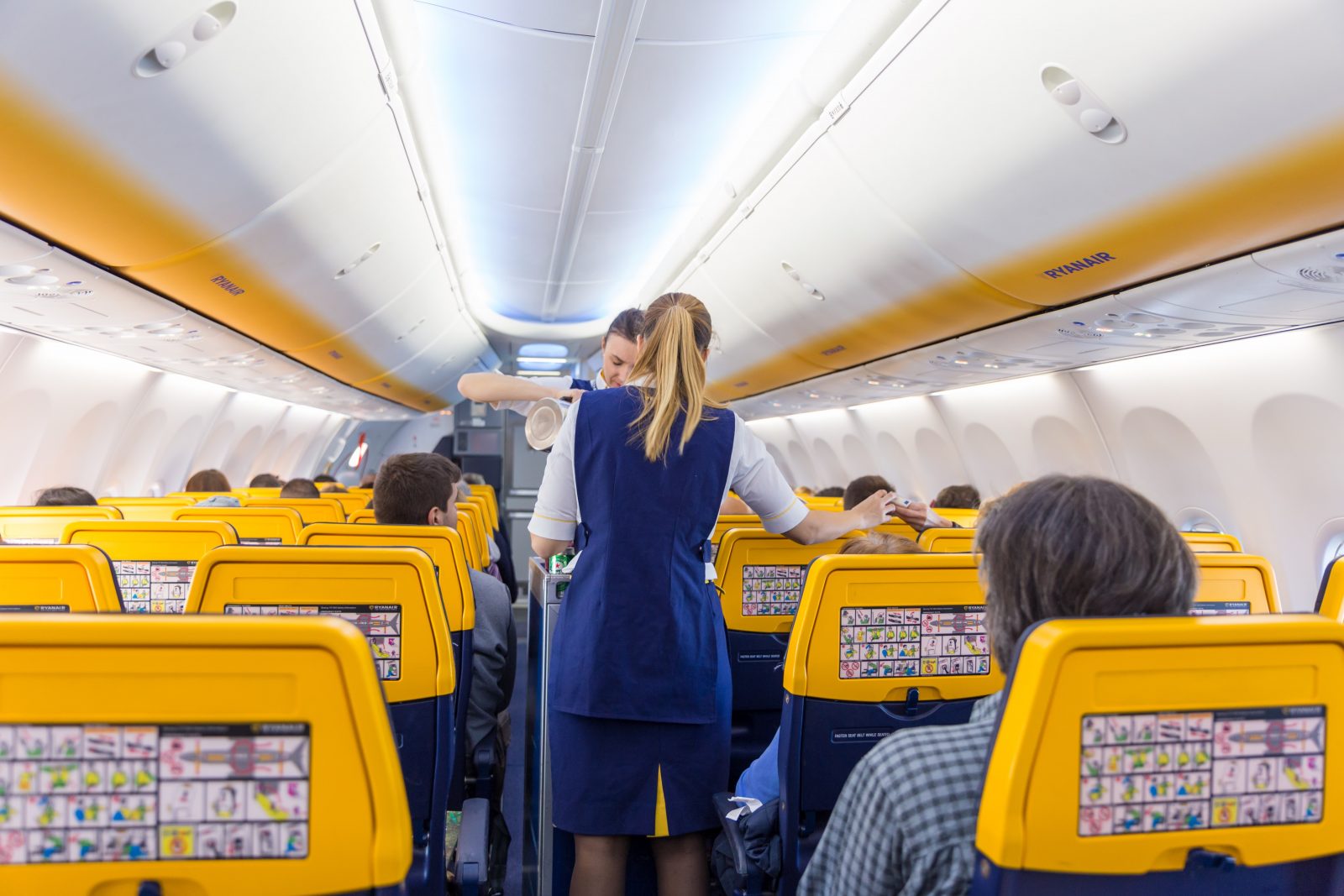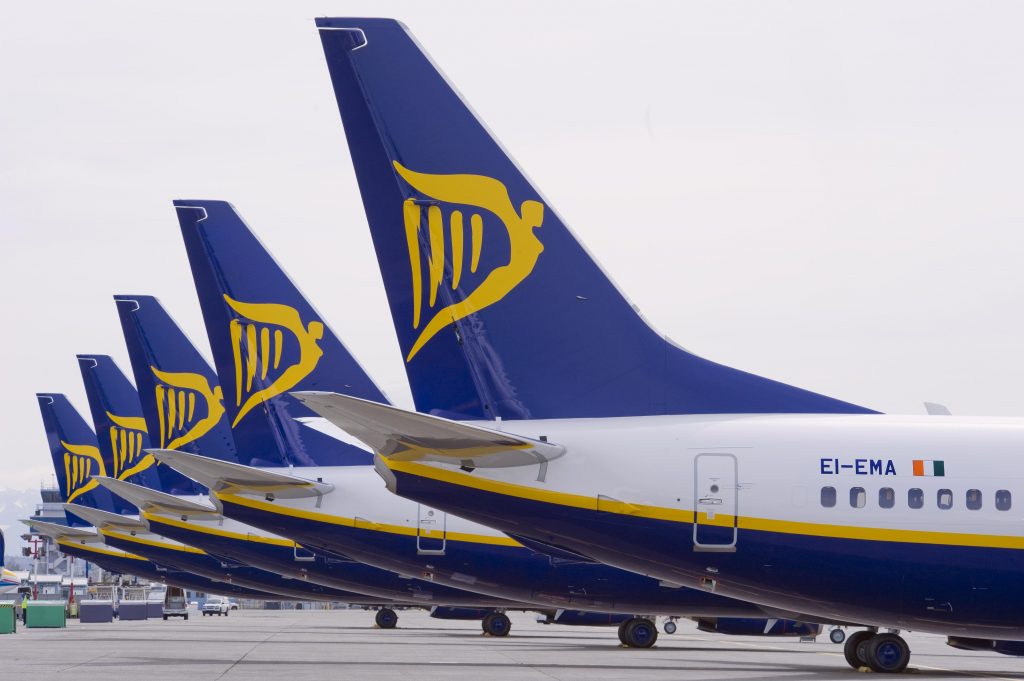
The chief executive of Ryanair has detailed new post-Coronavirus flying rules for passengers who choose to travel around Europe this summer with the budget carrier. Eddie Wilson told staffers in an internal staff message that face masks would be mandatory for both crew and passengers, and temperature checks would be conducted at airports across the airline’s network – but onboard social distancing is off the cards.
Europe’s largest low-cost airline has grounded nearly its entire fleet in response to the COVID-19 pandemic but Wilson says Ryanair is now eyeing a late June return to service to “save part of the summer season” – the period during which Europe’s budget carriers typically make most of their profit.

“We are looking at ramping up flights towards the end of June and we are looking to have 50 per cent of flights operating in July and August to save part of the summer season,” Wilson said in the leaked video message in which he argued the case for making 3,000 employees redundant and slashing wages by 20 per cent.
“I don’t need to remind anyone how grave this COVID-19 crisis is… this is the greatest crisis we’ve ever faced. Our aircraft have been grounded and our lives put on hold,” Wilson continued.
“Multi-billion Euro bailouts from national governments have distorted the market by paying out over €30 billion to airlines such as Lufthansa, Air France, KLM, Alitalia and Finnair, he complained. “What that means is that those airlines that would otherwise have to reduce capacity now have an unfair advantage against Ryanair.”
Wilson warned employees that Ryanair couldn’t rely on a bailout because it was a “well run” airline and that “burying their heads in the sand” simply wasn’t an option. While Ryanair hopes to salvage some of the summer season, capacity will be reduced by as much as 50 per cent and it could take several years for passenger demand to fully recover
“When we do return it will be much changed at the end of June and into July,” he explained. “There will be temperature checks at airports for passengers arriving at those airports, there will be masks or face coverings onboard for passengers and indeed cabin crew, we’ll facilitate reduced movement in the cabin, we’ll have no cash onboard, and we’ll increase the limits on contactless payments.”
Wilson made no mention of social distancing by blocking middle seats – a policy that has been spoken widely of but that an increasing number of airlines are rejecting. The International Air Transport Association (IATA) has dismissed the idea, saying blocking middle seats would do little to increase the safety of passengers.
But while many airlines will limit interaction between crew and passengers by reducing onboard service, Wilson suggests cabin crew will still be expected to carry out their normal service routine – an important ancillary revenue stream for the carrier. The only concession to protect crew will be a ban on cash to pay for onboard purchases.
“It is critical for the airline, our customers and all who work here that we get back to work, get Europe flying again, and get Europe flying safely,” Wilson concluded. That, however, will be highly dependent on national governments reopening borders in time for the summer season – and there’s no guarantee that will actually happen.
Related
Mateusz Maszczynski honed his skills as an international flight attendant at the most prominent airline in the Middle East and has been flying ever since... most recently for a well known European airline. Matt is passionate about the aviation industry and has become an expert in passenger experience and human-centric stories. Always keeping an ear close to the ground, Matt's industry insights, analysis and news coverage is frequently relied upon by some of the biggest names in journalism.







